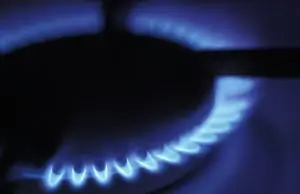
(+44 118 321 8197 from abroad)
| Monday to Friday | 10am - 4:00pm |
| Saturday, Sunday & Bank Hols | Closed |
Dave Mac
27 September 2024
5 tips to beat soaring energy bills
Beat rising energy prices using our 5 top tips to cut costs

In today's economic climate, everyone is looking to save money where they can. Household bills, particularly for things like gas and electricity, can really make a difference to a monthly budget. With energy prices at the level they are it is even more imperative to find efficient and eco-friendly ways of keeping costs down.
Small steps
Tip 1 General advice for saving energy can seem insultingly obvious, but a great number of people still leave things like lighting and electronic equipment on when not in use or even when nobody is at home. Turning off a computer at the socket before bed and switching lights off as you leave the room are easy habits to maintain and when you count how many appliances use electricity in your home, the combined savings will mount up. Investing in energy-saving light bulbs will also reduce costs over time.
Tip 2 Thinking of more economic ways to perform household chores is another small but significant step. This can mean simple changes like washing dishes by hand rather than in the dishwasher and air-drying clothes on a rack or an outside line instead of using a tumble dryer. Labour-saving devices are sometimes necessary, but it's good to bear energy efficiency in mind and try not to use electrical equipment if alternatives can be found. Even boiling just a minimum amount of water in a kettle makes more sense energy-wise.
Tip 3 When it comes to gas central heating, this can be managed more effectively by using timer settings or installing a thermostat to regulate the temperature. smart devices can help, but don't forget to just just switch off radiators in rooms which are not being used and to close windows and doors to help keep the heat contained where it's most needed. Similarly, think about how much hot water you use and only turn it on for as long as required.
Long-term thinking
Tip 4 It's sometimes difficult not to live day-to-day and only worry about immediate concerns, but a whole building can be considered when looking to save on energy bills. It's always a good idea to compare gas and electricity rates with other providers to make sure you are getting the best deal, but if the walls are poorly insulated, the windows single-glazed or badly sealed and draughts are escaping under the door, it's worth going further and looking at the house itself.
Tip 5 Whether you're a tenant or a homeowner, you may already have seen an energy performance certificate, which assesses the current running costs of a property and the potential savings that could be made through repair work. Acting on suggestions made by such a report e.g., having loft insulation put in or windows replaced can really improve the performance of your home. The same goes for appliances like the boiler; a new heating system can be expensive, but an old, dysfunctional one can prove even more costly over the years.
Being energy conscious does not have to be an effort; the smaller changes are usually a case of getting into good habits and repair work is definitely worth considering for the long run. A different approach to maintaining your home may be all that is required to beat those energy bills and still preserve a comfortable standard of living.
Recent Articles
- Get All The Benefits of Car Hire Excess Insurance For Less When You Compare
- How Much Liability Insurance Is Included In Your US Car Rental?
- Which countries can be covered with a European Car Hire Excess Policy?
- Gadget Insurance will cover your January sales bargains.
- Why Comparing Car Hire Insurance is Critical
- Travel Insurance beware the Personal Effects Contribution Agreement
- How Travel Insurance can help your New Years Resolution become a reality
- Colder weather causing family arguments over heating
- Travel in comfort this Easter holiday - Rent a 9 seater car or minivan